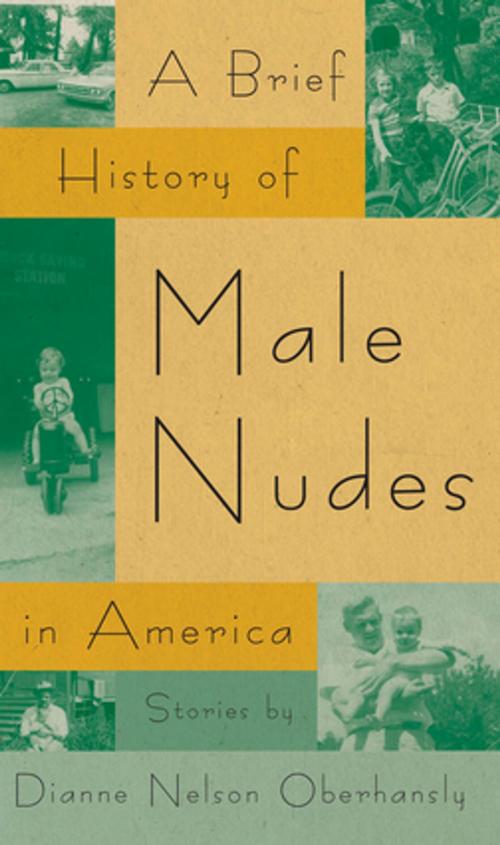| Author: | Dianne Nelson Oberhansly | ISBN: | 9780820342009 |
| Publisher: | University of Georgia Press | Publication: | October 1, 2011 |
| Imprint: | University of Georgia Press | Language: | English |
| Author: | Dianne Nelson Oberhansly |
| ISBN: | 9780820342009 |
| Publisher: | University of Georgia Press |
| Publication: | October 1, 2011 |
| Imprint: | University of Georgia Press |
| Language: | English |
In these stories, Dianne Nelson illuminates that vast territory of pleasure and pain created within modern families. Whether it is a father trying to kidnap his young son from his estranged ex-wife or a woman celebrating her ability to produce babies without any help from men, Nelson's characters reveal the dark, haunting and sometimes comic dilemmas of kinship.
In the title story, seventeen-year-old April is an involuntary witness to the seemingly endless parade of lovers who frequent her mother's bed. "I don't know why my mother finds no lasting peace" she muses. Opening a book and trying to find her peace in "facts, dates, the pure honesty of numbers," April is overwhelmed finally by the sounds of lovemaking from the adjoining room. "The walls of this house aren't thick enough to keep that kind of sadness contained." In "The Uses of Memory," Netta and Carlene are engaged in a different sort of mother-daughter drama. The issue at hand is the fate of Franklin, their husband and father, who lies in bed in a near comatose state, oblivious to the nurturings or pleadings of either woman.
The past, with its countless repercussion on the present, tugs relentlessly at many of the characters. In "Chocolate," the lingering pain of an impoverished childhood plagues Janice; she recalls, in particular, the birthday and Christmas celebrations, the meager gifts wrapped in the same brown twine that was used to hold the door shut. Hillary, the narrator of "Dixon," is spurred into action by the memory of her dead brother. When a local barfly with "silt for brains" persists in telling outlandish lies about Dixon, Hillary takes up karate training with an eye to defending her brother's name the truth of what she knew him to be. Dee, in "Paperweight," can pinpoint the exact moment at which she came to think of the body as an earthbound trap, "a hopeless house with the doors all locked"; she traces it back to a grade-school theatrical performance and a classmate's luckless efforts to open the cumbersome stage curtains. "If it weren't for my body," she laments, "I could fly, I could go anywhere, I could be anything."
Ranging in setting from a restaurant in St. Louis to the rain-soaked streets of San Francisco, from a boisterous family reunion beneath the broad Kansas sky to a ranch in Utah where a young father dreams of becoming a movie star, these fifteen stories show men and women pondering—and often struggling against—the mysteries of their own circumstances, especially the bonds of flesh and blood.
In these stories, Dianne Nelson illuminates that vast territory of pleasure and pain created within modern families. Whether it is a father trying to kidnap his young son from his estranged ex-wife or a woman celebrating her ability to produce babies without any help from men, Nelson's characters reveal the dark, haunting and sometimes comic dilemmas of kinship.
In the title story, seventeen-year-old April is an involuntary witness to the seemingly endless parade of lovers who frequent her mother's bed. "I don't know why my mother finds no lasting peace" she muses. Opening a book and trying to find her peace in "facts, dates, the pure honesty of numbers," April is overwhelmed finally by the sounds of lovemaking from the adjoining room. "The walls of this house aren't thick enough to keep that kind of sadness contained." In "The Uses of Memory," Netta and Carlene are engaged in a different sort of mother-daughter drama. The issue at hand is the fate of Franklin, their husband and father, who lies in bed in a near comatose state, oblivious to the nurturings or pleadings of either woman.
The past, with its countless repercussion on the present, tugs relentlessly at many of the characters. In "Chocolate," the lingering pain of an impoverished childhood plagues Janice; she recalls, in particular, the birthday and Christmas celebrations, the meager gifts wrapped in the same brown twine that was used to hold the door shut. Hillary, the narrator of "Dixon," is spurred into action by the memory of her dead brother. When a local barfly with "silt for brains" persists in telling outlandish lies about Dixon, Hillary takes up karate training with an eye to defending her brother's name the truth of what she knew him to be. Dee, in "Paperweight," can pinpoint the exact moment at which she came to think of the body as an earthbound trap, "a hopeless house with the doors all locked"; she traces it back to a grade-school theatrical performance and a classmate's luckless efforts to open the cumbersome stage curtains. "If it weren't for my body," she laments, "I could fly, I could go anywhere, I could be anything."
Ranging in setting from a restaurant in St. Louis to the rain-soaked streets of San Francisco, from a boisterous family reunion beneath the broad Kansas sky to a ranch in Utah where a young father dreams of becoming a movie star, these fifteen stories show men and women pondering—and often struggling against—the mysteries of their own circumstances, especially the bonds of flesh and blood.















